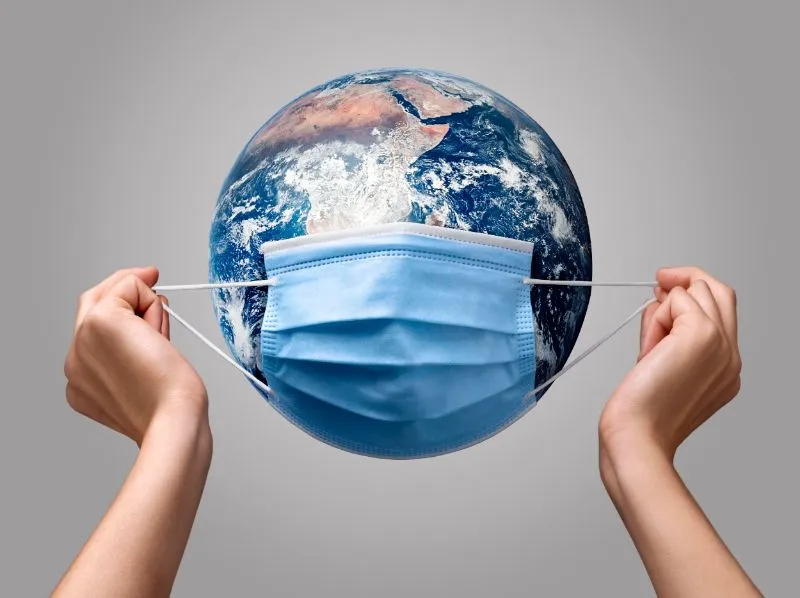After its initial outbreak in Wuhan city, China, coronavirus has infected more 1,853,717 people across the globe in over 150 countries, according to international statistics. There have been approx. 114,280 deaths reported, and the death toll is still on the rise. COVID-19 comes from the family of viruses that affect the respiratory system of its hosts. In extreme cases, it can cause multi-organ failure, respiratory/lung failure, pneumonia, and septic shock. But these are rare, and most patients recover after facing mild flu-like symptoms.
What to do in case symptoms appear?
The typical coronavirus symptoms include flu, blocked or stuffy nose, fever (can be low or high-grade), and a dry, persistent cough that doesn't go away. WHO and other international healthcare organizations are recommending that if such symptoms appear than staying home and self-isolation can help curb the spread of infection. There are online health portals like Cura4U that are helping doctors and patients stay safe during this outbreak. Do not panic and do not rush to the hospital in case there is an onset of mild symptoms. Restraining yourself is important if you want to keep everyone safe.
Who is more at risk?
Anyone over 60, with a previous history of serious health issues and low immunity, is at risk of getting infected by the coronavirus infection. Medical conditions that include cardiovascular disease, high blood pressure, diabetes, and respiratory disease, cancer, and pregnancy bring down immunity. They leave the human vessel more prone to contracting contagions.
Quarantine yourself to save precious human lives. Stay indoors, opting for social distancing. If there is any necessity to go out for any reason, keep a distance of six feet from other people. Use a face mask, especially a respirator mask to breathe safely. Cover your nose and mouth immediately if you feel like sneezing or coughing. Wash your hands time and again to keep up good hygiene and do not touch your face, nose, or eyes when in shared spaces.
How long do the symptoms last?
The symptoms can last from 7 days to two weeks approximately. Patients that need hospitalization were observed to get severe or critical in a week's time. 80% of the cases are mild, and they recover from anywhere between a week to two at the most. Serious patients can take longer to get better, and their tenure ranges from 3 to 6 weeks. Most will show just a fever, which then includes fatigue and dry cough. The cough can turn into pneumonia with shortness of breath, indicating that the patient should be rushed to the emergency or corona care medical camp.
What to do to prevent the infection?
Since it’s a pandemic and is spreading throughout the world, one stops to think if there is any possibility of staying completely safe. Physicians around the world are suggesting that taking up a few precautionary measures are the only way that we can steer clear of the infection. There are no medications or vaccination for COVID-19. We cannot treat an infected individual or prevention is possible. Isolation, social distancing, good hand hygiene, and staying quarantined can save millions of lives. If there are any concerns about a possible infection, book online lab tests/imaging and consult reliable doctors from home through virtual care to keep yourself and your loved ones safe and sound.









